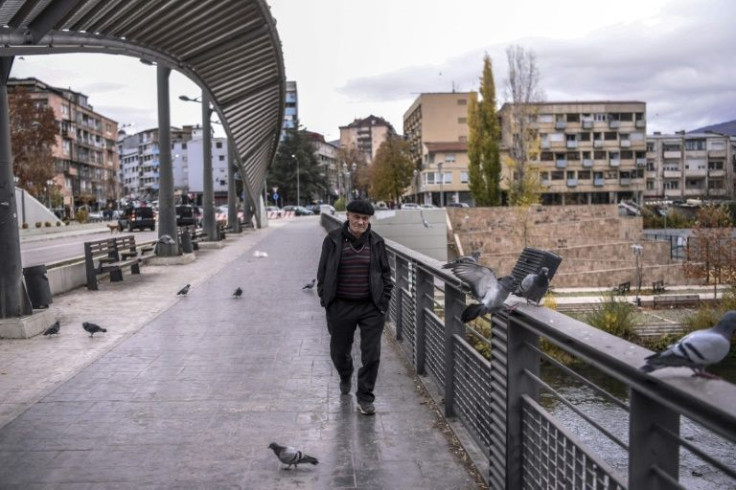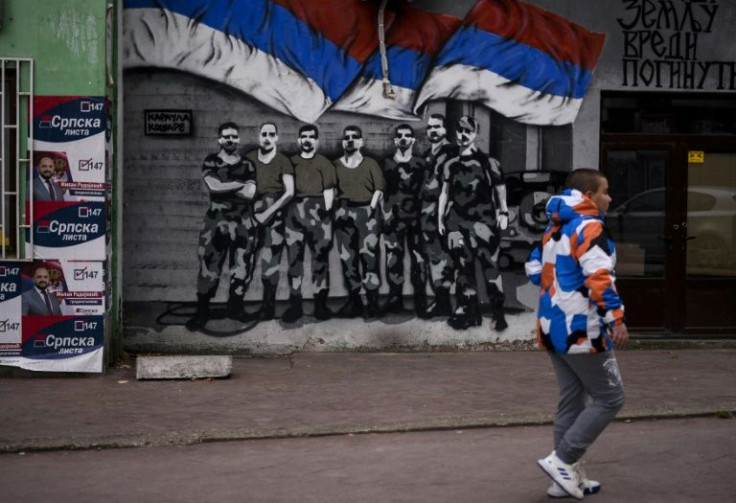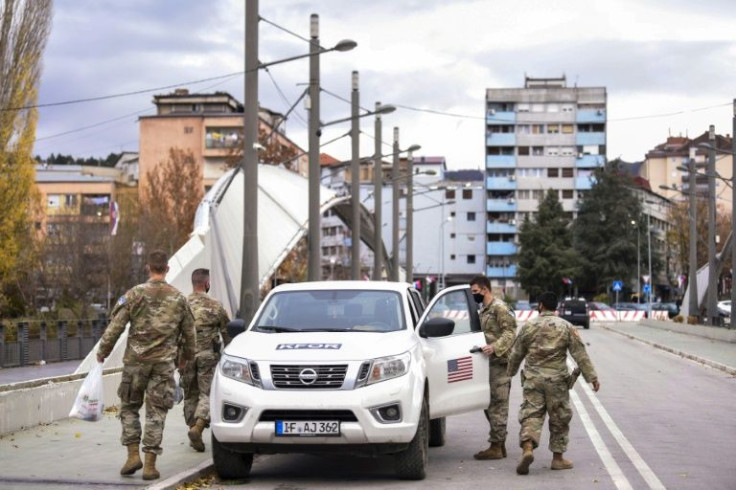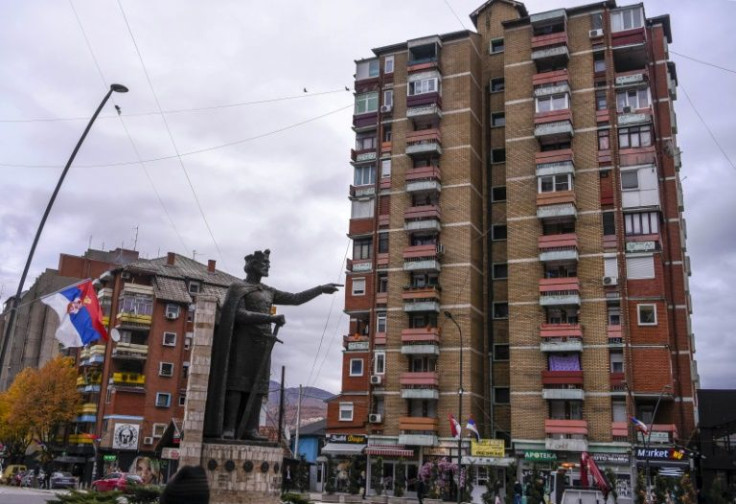'Pawns': Serbs In North Kosovo Stuck In Simmering Dispute
In Kosovo's Mitrovica, Serbian flags and nationalist murals blanket the streets of its Serb enclave -- where the community effectively oversees a state within a divided city that is a symbolic flashpoint.
For the past two decades, Mitrovica in northern Kosovo has straddled a simmering fault line between Serbs in the north and ethnic Albanians in the south.
NATO underwrites the uneasy peace and the Ibar River effectively partitions the two communities.
The city is a microcosm of tensions, with Belgrade refusing to acknowledge Kosovo's 2008 independence declaration and rioting last month reigniting fears that clashes in the hotspot could inflame relations.

"There is a general opinion that a conflict is imminent," Jovana Radosavljevic, the director of local non-profit the New Social Initiative told AFP, saying tensions were at their highest levels in a decade.
The 33-year-old activist blames the rising temperature on populist rhetoric from Kosovo's new government led by Prime Minister Albin Kurti as well as distrust sown by officials in Belgrade.
"We are pawns in the game," she says.
Mitrovica's proximity to the Serbian border to the north has transformed the city's Serbian enclave into an instrument of Belgrade where unrest can be stirred and indirect pressure applied on Kosovo.

On and off EU-brokered talks have yielded little progress in recent years, while distrust persists between Kosovo Albanian and Serb communities following the Yugoslav wars in the late 1990s.
For centuries, Serbs have viewed Kosovo as the cradle of its culture and Orthodox faith, complicating efforts to strike a compromise deal.
Along Mitrovica's main thoroughfare, a towering statue of the medieval Serbian king Lazar points a defiant finger south where most of the city's 70,000 Albanians live.
"Kosovo is ours and will remain ours," says Serb resident Stefan Miljkovic, 28.

The Serbs in Mitrovica and a smattering of other northern enclaves have steadfastly refused to acknowledge Kosovo's independence.
Community members express defiance through civil disobedience -- everything from refusing to pay utility bills and taxes to declining to cross Mitrovica's bridge to interact with their Albanian neighbours.
Locals use Serbian dinars in shops and pupils study Belgrade-approved curriculum in schools.

"It's the Wild West here," says Dejan Nedeljkovic, a 38-year-old economist, who said he was once fired after a dispute with local Serb powerbrokers.
With an estimated Serb population of 12,000 Mitrovica, the enclave and other northern Serb areas are closely controlled by a party linked to the Serbian Progressive Party of President Aleksandar Vucic.
Most of the city's Serb minority works for Belgrade-funded institutions -- with employment prospects often linked to the individual's allegiance to the ruling Srpska Lista (SL) party, according to several local accounts.
"You can be as smart as you want, have gone to all the universities you want, if you are not a member of this political group, you have zero chance of getting a job in a public company," said Nedeljkovic.
Kosovo prosecutors suspect a criminal group led by senior SL officials masterminded the 2018 murder of opposition leader Oliver Ivanovic.
The slain politician was one of the few voices critical of both Belgrade and organised crime syndicates, while also pushing for cooperation between communities.
"We had a lot of problems after the murder. The pressure was unbearable," says Ksenija Bozovic, a close advisor to Ivanovic.
"We had tried to run for office on our own and look what happened... a champion of democracy and dialogue, was assassinated in broad daylight."
She nonetheless joined forces with the ruling SL party during recent elections, saying Serbs needed to be united.
Limited prospects in Mitrovica have pushed many young and ambitious Serbs to leave.
"I don't see any prospects for my children in Kosovo," says Nedeljkovic. "When they finish high school at 18, I will send them to central Serbia and then they will have to manage, probably in Western Europe."
In the years following the war, the deep divisions separating Albanians and Serbs have calcified, leaving little room for dialogue with few able to speak the other's language.
But before the conflict, the city's residents lived in mixed neighbourhoods, recalls Naser Dribani -- a 52-year-old Roma who left Mitrovica in 1999 and now lives in France.
"Before, there were no races," he laments, saying he had recently travelled back to the city to sell his home.
"This is not a life. We can't go back to living here."
© Copyright AFP 2024. All rights reserved.





















